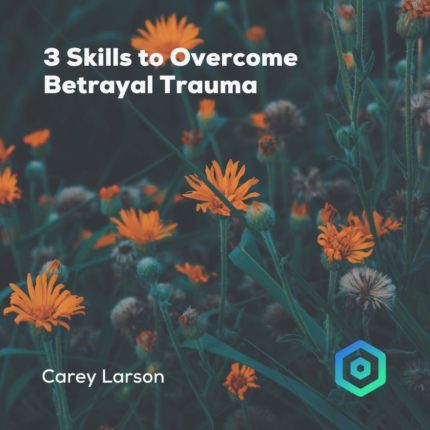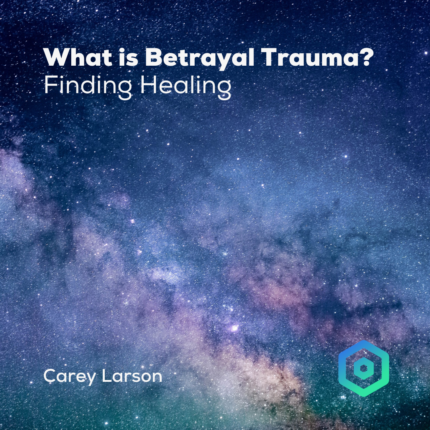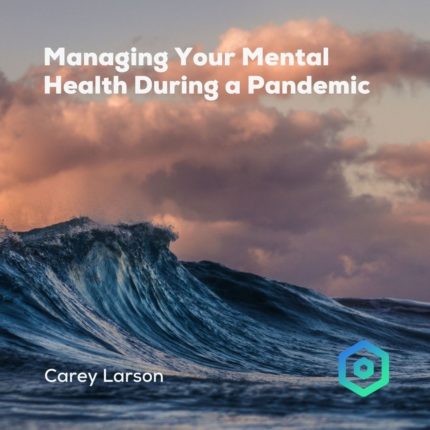3 Skills to Overcome Betrayal Trauma
Did you freeze in disbelief in the moment of discovering your partner’s betrayal? If so, specific sounds, smells, images, or emotions may take you right back to that moment. The intensity of the event may seem to accompany you as you drift between past and present. Likewise, anxiety, anger, grief, and heartache keep your heart racing day and night. If life hasn’t felt the same, you may be living with betrayal trauma.
Betrayal trauma is the after-effect of a serious betrayal within a relationship. Symptoms are similar to PTSD and can be as debilitating too. So, how do you return to some sense of normalcy? Is there something you can do to help you restore a sense of peace and calmness within?
In this article, we’ll highlight three specific skills that may help you reclaim your life after betrayal trauma.
Life After Betrayal Trauma
It’s hard to say what life after betrayal trauma will look like. After all, the impact of such a devastating situation can affect everyone differently. However, there are some common symptoms that you may recognize.
For example, symptoms can include:
- changes in appetite
- weight gain or loss
- anxiety
- depression
- difficulty concentrating
- intense emotions
- mood swings
- irritability
- feeling numb
- triggers/flashbacks
- sleeplessness
- nightmares
Betrayal trauma can leave you feeling like your world has flipped upside-down. So, how do you begin to heal and find your new normal? The following skills may help you in your day-to-day efforts to feel a sense of normalcy.
3 Skills to Help You Work Towards Reclaiming Your Life After Betrayal Trauma
- Mindfulness. Allow your thoughts and emotions to come and go freely without judgment. For example, if you feel angry, acknowledge your anger but don’t attach meaning to it. This skill can help you stay in the present moment. Likewise, allowing yourself to feel any emotions that arise can provide insight as you move toward healing.
- Grounding. Betrayal trauma can lead to anxiety, depression, and panic attacks. As a result, you may experience moments that seem to leave you gasping for air. When fear or panic set in, grounding may help you regain control of your thoughts. Using your five senses, identify what you see, smell, touch, feel, and hear. As you do, begin to slow your breathing down. For example, as you take a deep breath in, identify what you feel beneath your feet. Are your feet on soft carpet or cold tile? Similarly, what do you smell or see? Continue this exercise until you regain a sense of calmness and control.
- Positive Affirmations. Our thoughts can have so much power over how we feel and behave. Betrayal trauma can have a significant impact on how you view yourself and the world around you. Therefore, positive thinking can be a game-changer when it comes to healing after a betrayal. Speaking positive affirmations aloud can significantly impact how you feel. Likewise, they can directly impact your core beliefs.
For example, you can try stating the following positive affirmations throughout your day:
- I am strong.
- I am smart.
- I am loveable.
- I am safe.
- I am competent.
Take a deep breath in as you repeat positive affirmations and take control of your thoughts. Remember, your spouse’s actions do not define you. Living with betrayal trauma is difficult. The good news is healing is possible.
Finding Hope and Healing After Betrayal Trauma
The road to healing from betrayal trauma can be challenging and lonely. After all, it can be difficult to come to terms with your new reality. Likewise, navigating through your emotions can be physically and emotionally exhausting. As such, having a solid support team can offer you refuge from distress. Likewise, talking to someone can help you voice your experience and identify your feelings during this difficult time.
Carey Larson, LMFT
Carey Larson, LMFT (highpointcounseling.com)
Carey is a Licensed Marriage and Family Therapist and has a private practice in Rock Springs, Wyoming. He grew up on a small farm in Northern Utah and has a passion for helping and working with others. Carey has experience and training in helping individuals and families with relationship issues, depression, anxiety, trauma, grief, and addiction.




